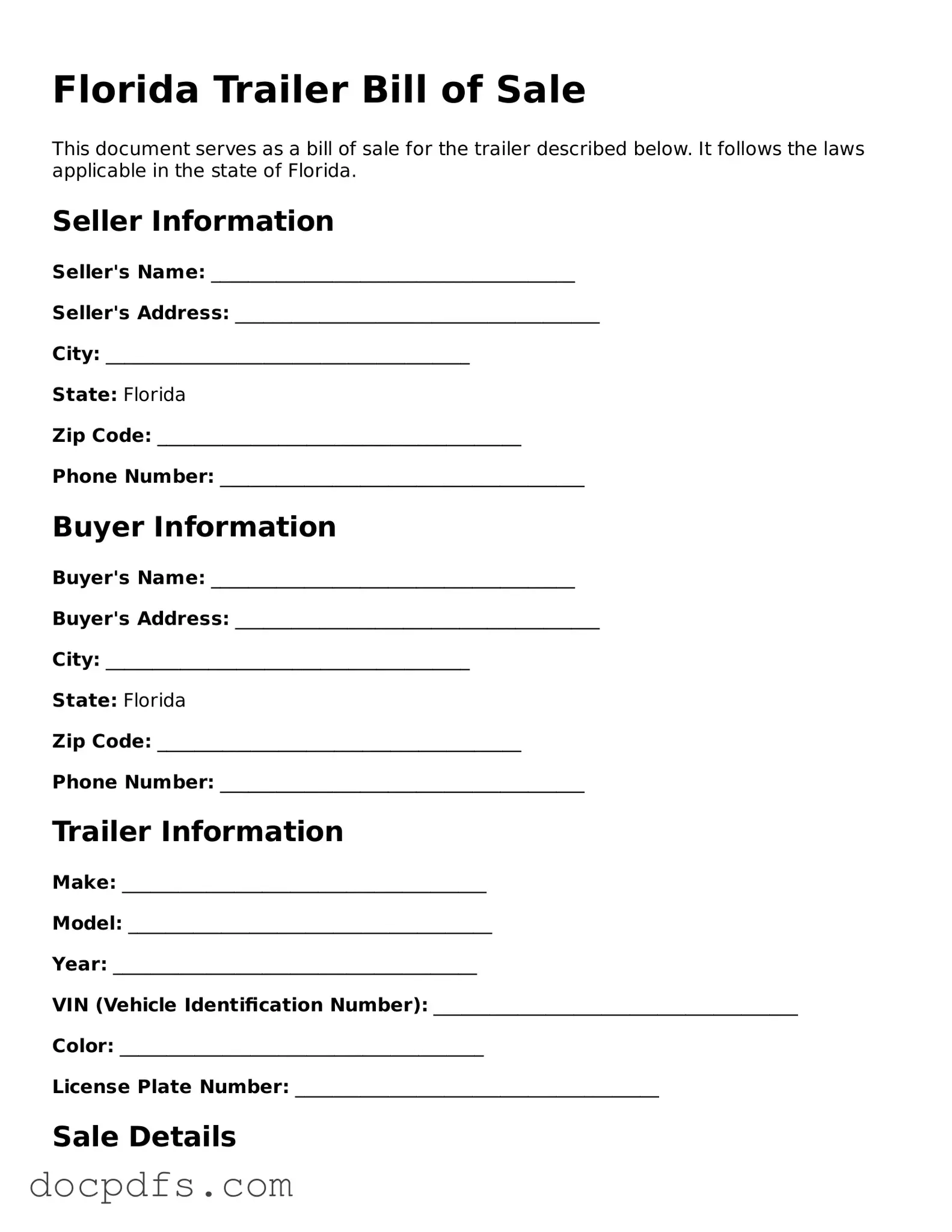Free Florida Trailer Bill of Sale Form
The Florida Trailer Bill of Sale is a legal document used to record the sale of a trailer in the state of Florida. This form serves as proof of ownership transfer between the seller and the buyer. Understanding its components and requirements can help ensure a smooth transaction and protect both parties involved.
Open Trailer Bill of Sale Editor Now

Free Florida Trailer Bill of Sale Form
Open Trailer Bill of Sale Editor Now

Open Trailer Bill of Sale Editor Now
or
⇓ Trailer Bill of Sale
Finish this form the fast way
Complete Trailer Bill of Sale online with a smooth editing experience.